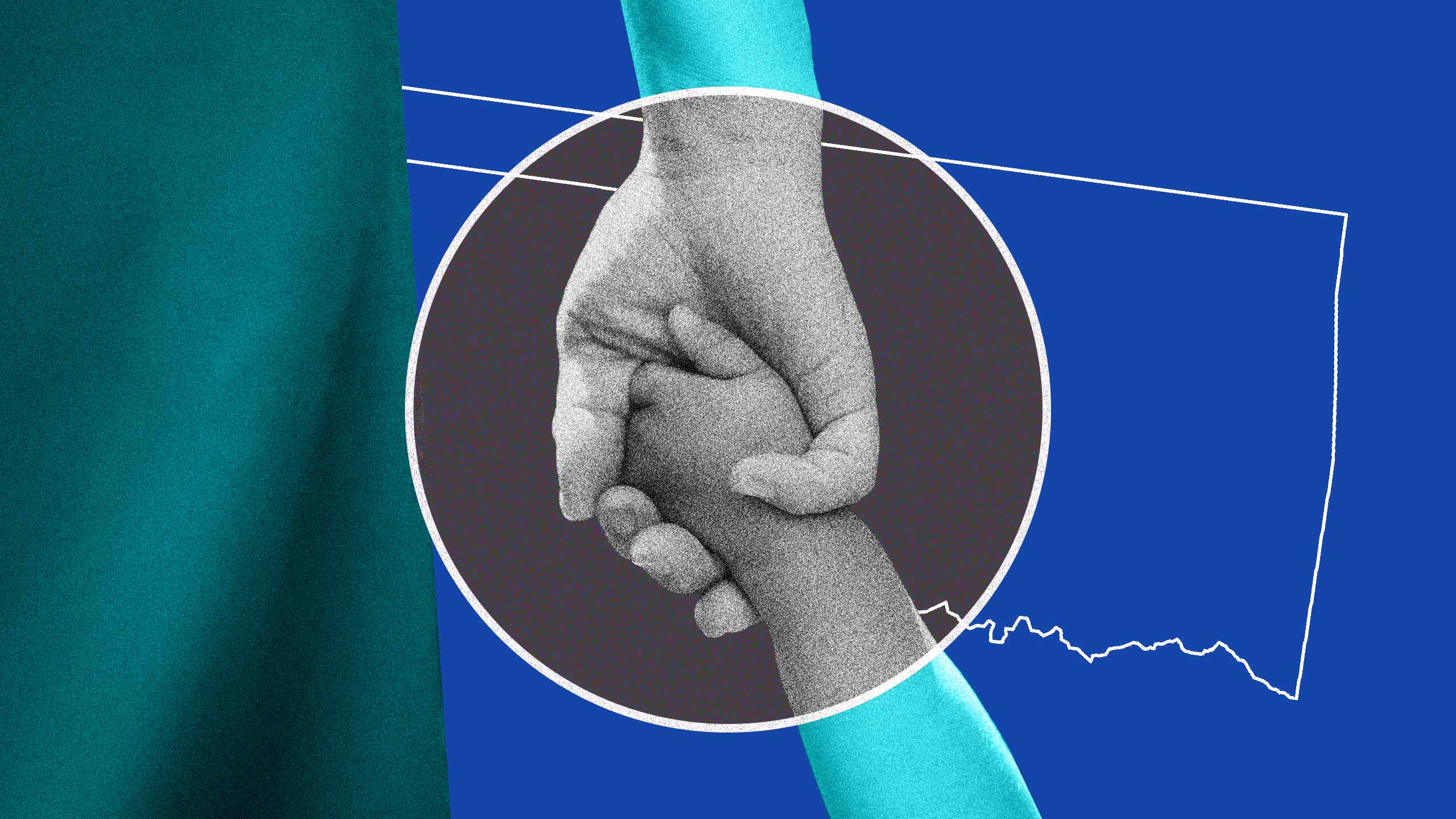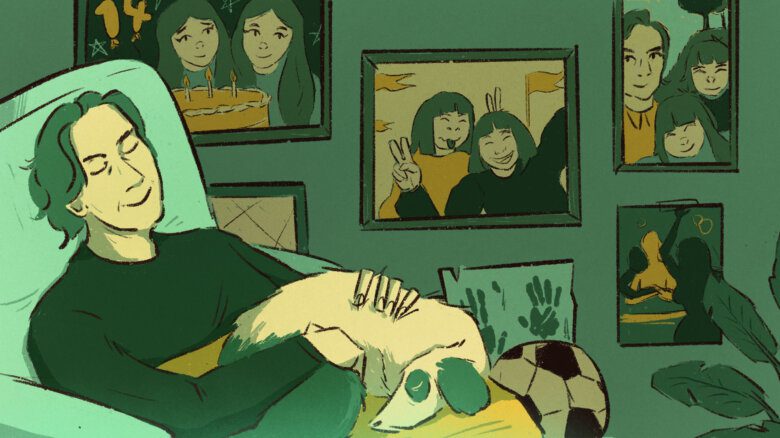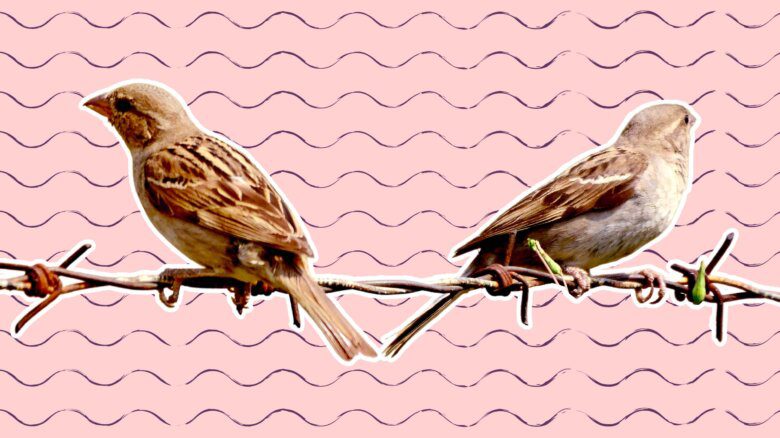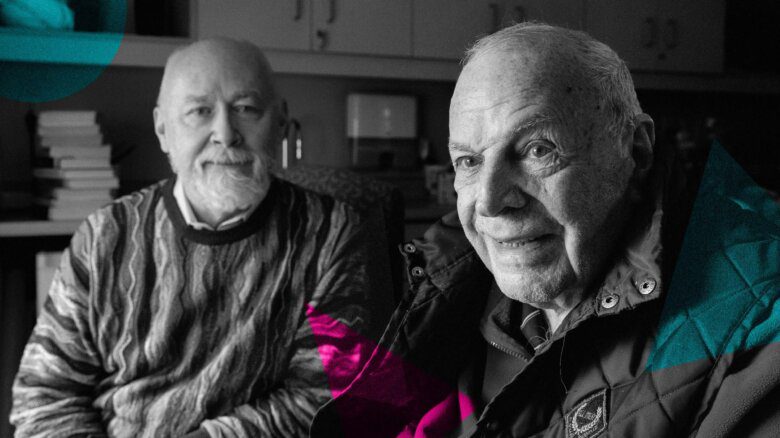An Oklahoma judge’s decision to revoke parental rights from a lesbian mom could have major impacts on equal marriage laws, experts warn.
On Feb. 13, Oklahoma County District Judge Lynne McGuire ruled that Kris Williams did not have a parental claim to W., the son she had with her ex-wife Rebekah Wilson (who was the gestational parent). Wilson had argued in court that Williams was not W.’s mother, and McGuire ruled in her favour, deciding that Williams had not adopted her son, and turning over parental rights to sperm donor Harlan Vaughn, with whom Wilson began living in the wake of her split with Williams.
“I don’t feel like we should have to adopt our own children,” Williams told the 19th. “If I was a man, then nobody could come back and you know, question whether that child was mine or not, after they’re the age of two.”
Williams and Wilson married while Wilson was pregnant with W., and divorced acrimoniously in 2021. McGuire originally removed Williams from W.’s birth certificate last May, before reinstating her name in June. But the issue of parental rights had remained in the air until this most recent ruling.
McGuire justified removing Williams’s parental rights by citing Oklahoma’s Uniform Parentage Act, which predates marriage equality in the state, and ruling that the act does not take into account same-sex couples.
The Oklahoma Uniform Parentage Act, when discussing “paternity,” lays out how a second parent is “presumed to be the father of a child.”
Under the act, the second parent is presumed to be related to the child if: a child is born while two people are married; a child is born within 300 days of a marriage being terminated; the parents married one another after the child was born and the second parent “agreed to be and is named as the child’s father on the child’s birth certificate” or “he promised in a record to support the child as his own”; or the second parent resided with the child for the first two years of their life and “openly held out the child as [their] own.”
Under this law, Williams would seem to be the lawful second parent, considering she married Wilson during the pregnancy, was named on the birth certificate, lived with the child and considered W. her son. But McGuire ruled that the parentage act does not make provisions for same-sex couples, as it had not been updated since the state’s ban on equal marriage was declared unconstitutional in 2014.
“[The act] does not take into account same-sex marriage, and there is no presumption that the wife of the mother is automatically presumed the parent of a child born during the marriage,” McGuire wrote.
The 2015 Supreme Court case Pavan v. Smith ruled civil marriage has “the same terms and conditions as opposite-sex couples,” specifically regarding parentage on birth certificates for children born in marriage. But some states, like Oklahoma, have not updated state laws to reflect this precedent.
Williams’s attorney Robyn Hopkins told the 19th that there would be an appeal, as the lawsuit could have larger ramifications for queer parents across the U.S.
“Today, I’m disappointed to be an Oklahoman,” Hopkins said. “I feel like this is our community’s cry for help and we need all hands on deck. I’m comparing it to a natural disaster.”
ACLU attorney Hanna Roberts had previously told the 19th that the case had the potential to shatter rights that were granted through long struggles by LGBTQ2S+ activists.
“I think that this is just the first time that there has been such an adverse ruling that is so contrary to equal protection. It’s gotten the attention because same sex-couples get divorced all the time,” Roberts said, regarding the May 2022 decision to remove Williams from W.’s birth certificate.
Wilson currently has an emergency victim protective order against Williams, alleging that she was abusive and that she is removing Williams from her son for his safety. While Williams denies the accusations, she also says it has no bearing on whether she is legally W.’s mother.
Threats to equal marriage are part of the larger conservative crusade against LGBTQ2S+ issues. After Roe v. Wade was overturned in the Supreme Court last June by a 6-3 vote, the more conservative justices immediately made clear that they were also eying up 2003’s Lawrence v. Texas and 2015’s Obergefell v. Hodges, rulings that overturned sodomy laws and legalized equal marriage, respectively. In response, Congress passed the 2022 Respect for Marriage Act, which officially repealed the 1996 Defense of Marriage Act, ensuring that all legally performed marriages have to be recognized across state lines—but the RFMA doesn’t actually codify same-sex marriage federally, and if Obergefell were to fall, equal marriage could potentially be outlawed in half of U.S. states. Even in Canada, some queer parents have run into problems registering as parents, indicating the need for stronger legislative protection.
The Supreme Court’s makeup has also become more conservative than it was in 2015, owing largely to former President Donald Trump’s right-wing appointees—who have also skewed the lower courts in a more conservative direction. If Williams’s case escalates, there’s no certainty that more senior courts will want to protect equal marriage or broader LGBTQ2S+ rights.
Nancy Polikoff, an expert in LGBTQ2S+ family law, told the 19th that queer parents could consider adopting their children as “the guarantee that that parent-child relationship can be recognized anywhere.”
But Hopkins says that queer people should not have to jump through extra hoops for the rights they are legally entitled to by Pavan v. Smith.
“Show me where the case law says that gay people have to adopt their own children?” Hopkins told KFOR, Oklahoma City’s NBC station. “Why do gay people have to have a home study and a background check to adopt their own children and pay upward of a couple thousand dollars and go to court to make it official?”


 Why you can trust Xtra
Why you can trust Xtra


